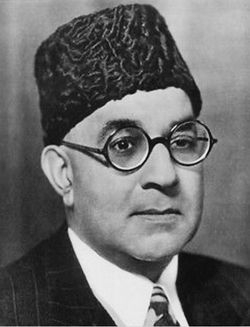Political Engineering in Pakistan: A Brief Historical Analysis
Political engineering in Pakistan is the process by which the military and other powerful actors have sought to manipulate the political system to their advantage. This has involved a variety of tactics, including supporting and undermining political parties, rigging elections, and even staging coups.
Historical Background
Political engineering in Pakistan has its roots in the early days of the country's independence. The military played a key role in the creation of Pakistan, and it has continued to see itself as the ultimate guarantor of national security. As a result, the military has often intervened in politics when it has felt that the civilian government was not acting in the best interests of the country.
The first major instance of political engineering in Pakistan occurred in 1958, when General Ayub Khan overthrew the civilian government of Prime Minister Iskander Mirza. Ayub Khan ruled Pakistan for the next 11 years, and he implemented a number of reforms, including land reform and industrialization. However, his regime was also marked by repression and corruption.
In 1969, Ayub Khan was forced to step down after a mass uprising against his government. The next few years saw a period of political instability, with a number of different governments coming and going. In 1971, the military intervened again, this time to overthrow the government of Prime Minister Zulfikar Ali Bhutto.
The military ruled Pakistan from 1971 to 1977, when General Zia-ul-Haq staged a coup. Zia-ul-Haq ruled Pakistan until his death in 1988. His regime was marked by Islamization, military expansion, and repression of dissent.
Key Characters
Some of the key characters behind political engineering in Pakistan include:
General Ayub Khan
General Zia-ul-Haq
Lt. General Hameed Gul
General Asif Nawaz Janjua
General Pervez Musharraf
General Shuja Pasha
Lt. General Zaher-ul-Islam
Lt. General Rizwan Akhtar
General Ashfaq Parvez Kiyani
General Qamar Javed Bajwa
Lt. General Faiz Hameed
These generals all played a key role in shaping the course of Pakistani politics. They did this by supporting and undermining political parties, rigging elections, and even staging coups.
Current Status
The military continues to play a significant role in Pakistani politics. It is the most powerful institution in the country, and it has a long history of intervening in politics when it has felt that the civilian government was not acting in the best interests of the country.
In recent years, the military has been accused of interfering in the 2018 general election to help the Pakistan Tehreek-e-Insaf (PTI) win power. The military has also been accused of supporting the PTI government's crackdown on dissent.
Future Outlook
The future of political engineering in Pakistan is uncertain. The military is likely to continue to play a significant role in the country's politics, and it is possible that it will intervene again if it feels that the civilian government is not acting in the best interests of the country.
However, there are also signs that the Pakistani people are becoming more aware of the dangers of political engineering. There is a growing movement in Pakistan for civilian supremacy and for the military to stay out of politics. It is possible that this movement will eventually succeed in reducing the military's role in Pakistani politics.
Conclusion
Political engineering has had a devastating impact on Pakistan's democracy. It has prevented the country from developing a stable and democratic political system. It has also led to corruption, repression, and instability.
It is important for the Pakistani people to stand up against political engineering and to demand a civilian-supremacist democracy. The military should stay out of politics and allow the Pakistani people to choose their own leaders.




Comments
Post a Comment